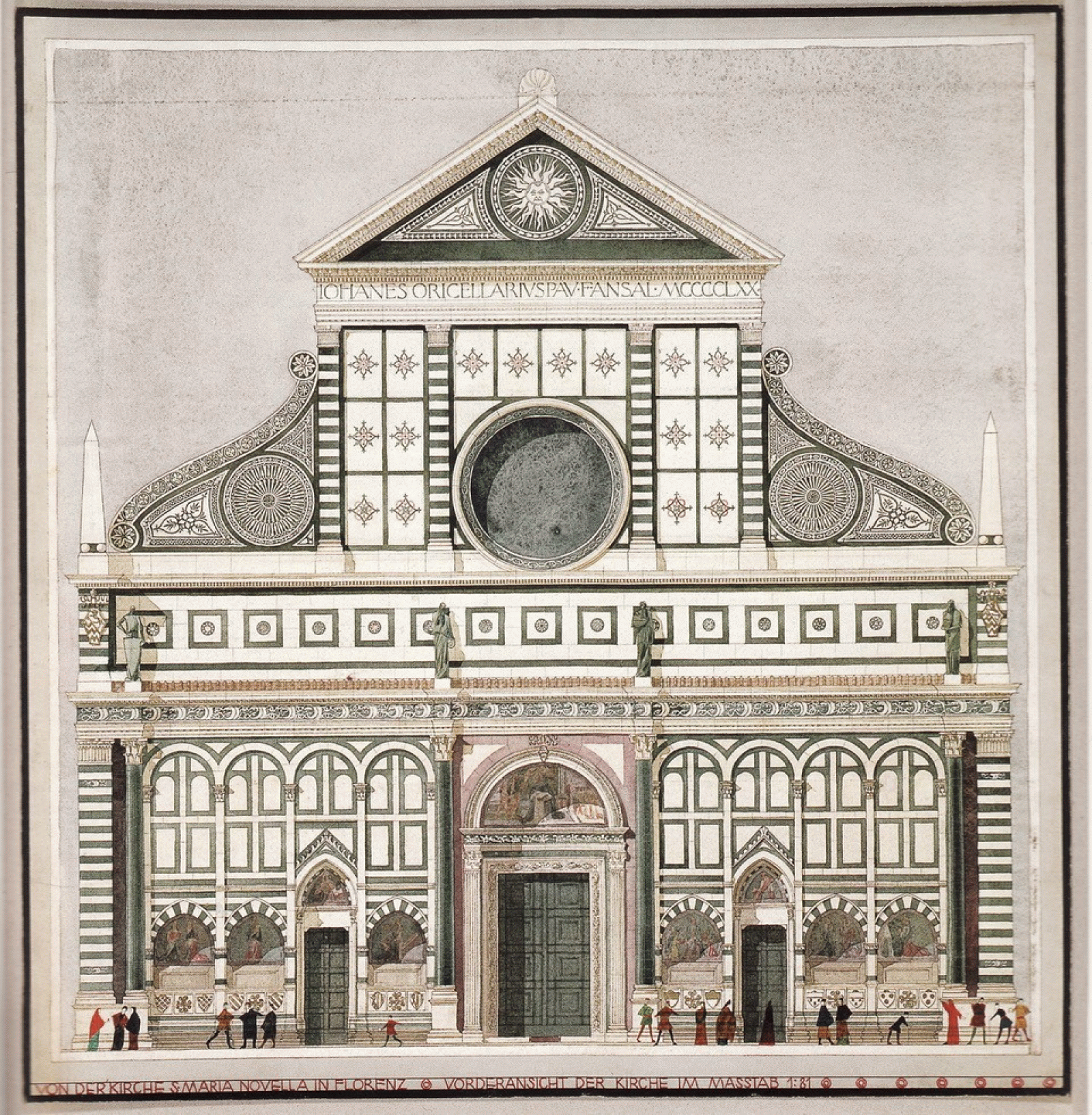Conferenza
Caterina Cardamone: Josef Frank, Leon Battista Alberti, and the Search for a Modern Architecture
(Humanismen I)

Josef Frank, Façade of the church of Santa Maria Novella in Florence („Von der Kirche Santa Maria Novella in Florenz Vorderansicht der Kirche im Masstab 1:81“), watercolor, 50,5 x 48,5 cm (in: Josef Frank, „Ueber die urpruengliche Gestalt der kirchlichen Bauten des Leone Battista Alberti“, doctoral dissertation, Technische Hochschule Wien 1910, original at the Archiv der Technischen Universität Wien, 304-1909/10)
Josef Frank (1885–1967) is generally acknowledged as one of the most influential Austrian architectural theorists of the 20th century, and as one of the most acute critics of Germanic modern architecture, from inside the institutions of the Moderne itself. My talk focuses on the main issue in Frank's theoretical work: the relevance of Italian Renaissance tradition in his search for a true modern and 'humane' architecture.
Frank's reflection starts already in his years as a student at the Viennese Technische Hochschule, where he completes his doctoral dissertation about Leon Battista Alberti's religious buildings in 1910. It continues until the end of his career, and emerges overtly in his unpublished manuscripts of the 1950s and the 1960s. His reading of De re aedificatoria at the end of the 1920s, leads to an unconventional anthropocentrism that puts into question the formal, ethical, and theoretical principles of the Germanic Moderne. Frank's anthropocentrism has not to be read as a set of anthropometric rules, it has nothing in common with the anthropometric research at that time. Instead, it focuses on humankind and its 'imperfections' and is built on some categories de-rived from the reading of Alberti's treatise, such as varietas, mediocritas and Annehmlichkeit.
My contribution analyses Frank's particular reception of the Renaissance tradition, raises some issues about its Viennese context, its 19th century historiographical roots, and–above all–about the meaning of his optimistic 'classicism' at the end of the 1920s.
The lecture will take place online via Zoom. The registration is free, but mandatory. Please register at the following address:
https://zoom.us/meeting/register/tJAocuCqrj0sH9YJFFzRe9sclol0K4e72AbD
Lecture series and discussions of the Ethics and Architecture-project and the Research Group Etho-Aesthetics of the Visual, organized by Hana Gründler and Albert Kirchengast.
26 novembre 2020, ore 14:30
Online lecture, registration is free, but mandatory. Please use the link above.
Avviso
Questo evento viene documentato fotograficamente e/o attraverso riprese video. Qualora non dovesse essere d’accordo con l’utilizzo di immagini in cui potrebbe essere riconoscibile, da parte del Kunsthistorisches Institut in Florenz a scopo di documentazione degli eventi e di pubbliche relazioni (p.e. social media) la preghiamo gentilmente di comunicarcelo.


